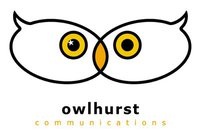 Is there any value in comforting your customers today with nostalgia from yesterday when their choices are naturally evolving at the rapid pace of a vastly shifting world around them?
Is there any value in comforting your customers today with nostalgia from yesterday when their choices are naturally evolving at the rapid pace of a vastly shifting world around them?
 Gareth Grant, Business Unit Head at The MediaShop, questions how best to future-proof a brand’s message to a post 2020 customer base.
Gareth Grant, Business Unit Head at The MediaShop, questions how best to future-proof a brand’s message to a post 2020 customer base.
In the current ever changing and growing market, there are some challenging questions that brands need to be asked. Marketers want their customers to want their products, but are they really talking to and engaging them?
It is important to consider whether customers are receiving brand messages in a way that holds enough meaning to potentially influence their behaviour. And if the message is being received, is it getting through in a way that works for your customer now and in the future?
Emerging from a global recession creates opportunity to rethink strategy. The tide is set to turn again, as it does, and the market could boom or we should at the very least see an upswing. But with this turning tide, we also face a new-age society. The industry is humming with buzz-words like “disruption”, “millennials”, “Gen-C” and “Artificial Intelligence” because these are the very factors demanding that we rethink strategy.
The post 2020 consumer base – the inhabitants of the new-age society; are not as concerned with brand heritage stories as they are with real-time solutions and services that ease the mundane daily load and allow for an easier life experience.
Cue Apple’s “Siri”, the Google Assistant and Amazon’s “Alexa”. So here we are, trying to engage with this post 2020 consumer, trying to disrupt enough to get some attention but not necessarily with a product that can include the best of AI such as Siri and Alexa.
Every business in each sector still needs to find ways to engage their audience though and I believe the key is to look at the relevance of the message as well as the means of communicating the message. We know the customer pool is bigger, younger and bolder than ever before. We know that they are all connected and that technology and social media are at the hub of the inhabitants of this “new world”. My colleague at The MediaShop, Richard Lord, wrote a very interesting article on the social media angles just recently http://www.mediashop.co.za/blog/item/256-are-foogle-the-enemy
To my first point – is the message itself relevant? The post 2020 consumer wants value-add so brands should ensure that the message communicates that. Disruption is a requirement to catch attention but attention span is a valuable commodity these days and so it is imperative that the message is made clear as soon as possible.
When I think of the current and future society, I have a laugh at the old joke about the “3-second rule”. In my circle if anyone dropped a morsel of food but managed to pick it up in 3 seconds or less – it counted as being still edible. This rule also applies to messaging – if your message manages to hook attention in 3 seconds or less – it is relevant. If not, your customer has moved on – moment forgotten, message? What message?
If this is the current landscape, then surely as AI and technology make life more streamlined and experiences more convenient every day, the demands on messaging are sure to increase.
To my next point though, how the interesting and relevant messaging is delivered needs to ensure that it is seen by the relevant eyes at a time and place that is as meaningful as the message itself. New digital platforms are constantly sprouting in the online landscape and whether a business is operating in the online space or not, leveraging this is essential.
Traditional platforms still show some return but continuity is absolutely required. A golden thread running through all platforms needs to be created in order for the consumer base to have multiple interactions with the message. The concept of “experiential” contact needs to be turned inside out and reinvented so that consumers experience a brand’s message in ways that are relevant to this time where the landscape changes literally from day to day. Consumers are selective to what content they consume and we need to talk to them in moments which matter to them in order to have their attention.
I say let’s do our best to engage on every platform, create a golden thread that runs through all points of engagement and get creative about the future. Let’s imagine the science fiction version of our audience 12 years from now, using current statistics pulled from the last five years, we can get as creative as we like in imagining the version of our audience in 5 and 10 years from now and we will more than likely still be hitting a conservative version.
So many questions and so few answers, I know. So then, just as inventors in every field scratch their heads at a challenge until a totally “crazy idea” provides the answers (think Edison, Newton and Musk), advertising and marketing needs to try some crazy ideas to get the message out there in a meaningful and engaging way. Let’s go! To Infinity and Beyond!
